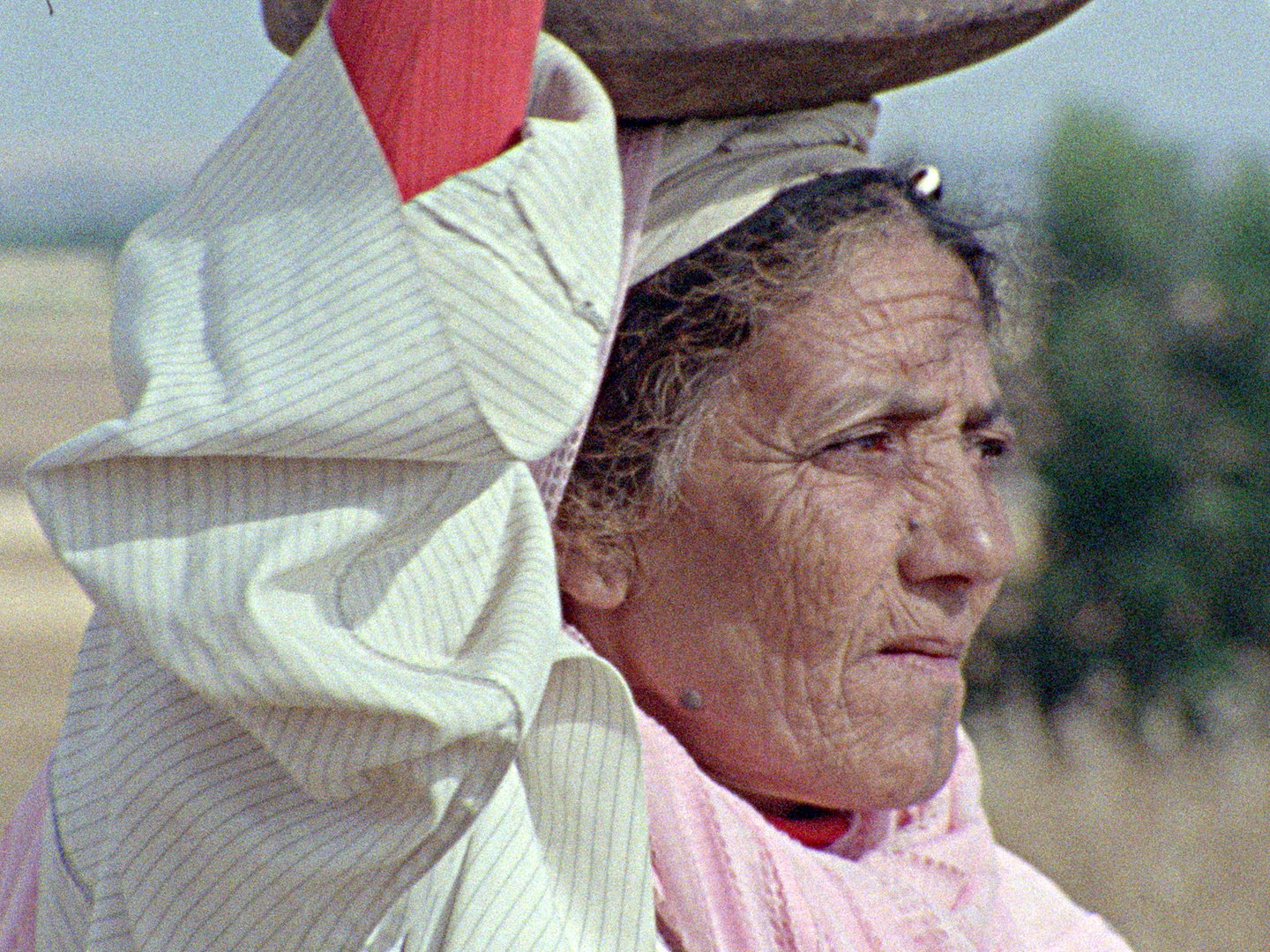
Set in a small village in the Moroccan countryside, Alyam, alyam tells a story culled from the lived reality of young men almost forty years ago while still remaining very much of the present day. A young man named Abdelwahed pins his dreams of a better life for himself and his family on travelling to France and finding work there. As the eldest of eight children, he becomes the principal caretaker and breadwinner for his family after his father passes away. He fills out forms and waits for his work permit to arrive. Meanwhile, Hlima, his recently widowed mother who’s reticent to let him go, tries in vain to dissuade him and enlists the help of Abdelwahed’s grandfather too. As the days flow by to the cadence of life in the countryside, marked by the hardships of farming, Abdelwahed waits. All he can do is wait. Straddling fiction and documentary, Alyam, alyam is Ahmed El Maanouni’s first narrative feature, and the first Moroccan film ever to be selected at the Cannes Film Festival. Recently restored, the film’s splendor and finely crafted editing has become available once again for new generations to discover.
“Alyam, alyam is a film about shattered dreams and the circumstances leading up to that point; about the shaking of the traditional social structure; about the strength born of desperation and the unrelenting dissipation of lost generations. This is stressed from the first notes of the opening music, by the strangely empty building frame that is slowly filled with people, by the village space, by the silence of the wandering woman who smokes, until the last shot of the film, when a crowd appears from behind a deserted hill. The dreams of a society growing smaller, unable to hold on to the resources that could help it survive, are mirrored by the mother’s helpless prayer, ‘I need your shadow, I need your light, I need your face.’
I simply wanted to show the farmers’ faces, to honor their sounds and their images, their silences and their words, and that’s why I chose not to interfere and to opt for deliberately restrained composition, movement and mise-enscène. I tried to minimize the camera’s ability to distort, make a point, or discriminate. I wanted each aspect to be presented equally. I did not look for spectacular beauty, but made an effort to let the imagery of the rural world speak through abstraction and silence.
Almost 40 years later, when I watch Alyam, alyam again, I am still comfortable with my aesthetic choices and my intuitions, but I cannot avoid noticing how, from beginning to end – from the opening shots with the blood shed by the camels, to the crowd of peasants appearing from behind the hills – it all seemed to presage the current tragedy experienced by the thousands whose broken dreams lie at the bottom of the Mediterranean, on which the voice of Nass El Ghiwane’s Larbi Batma seems to strangely resonate: “Alyam, alyam, oh, those were the days! Why are you crossed? Who changed your course? You were once sweet like milk, now you’re bitter. I love all men as if they were my brothers. My brothers have crushed me. I will silence my pain and let my love be loud.’”
Ahmed El Maanouni
“First I collected material, anecdotes and facts from the lives of farmers living in the Casablanca region. When I proceeded to put together the mosaic of the film, I asked the farmers to perform in the film. The film ranges between their experiences and my observations. My feature film is also a documentary, and my documentary is a feature film. (...) Abdelwahad does indeed wish to leave his homeland, but in reality his mother has already consented. She immediately understood why I asked her to embody the conflicts that arose in the family from her viewpoint as mother. [...] I chose them because Hlima has a strong charisma and her son is very ambitious. Right now he dreams of a chicken farm but he is still an agricultural laborer in the village.”
Ahmed El Maanouni